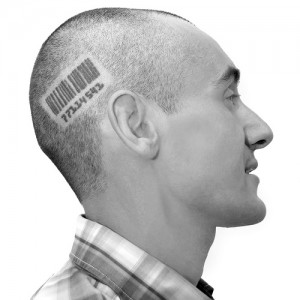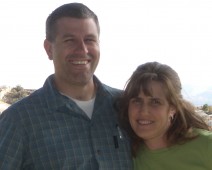 The desire to “fit in” is fundamental to human nature and society. We enjoy being with people that we have much in common with; it brings comfort, security, familiarity, and gives us the sense that we are right about things.
The desire to “fit in” is fundamental to human nature and society. We enjoy being with people that we have much in common with; it brings comfort, security, familiarity, and gives us the sense that we are right about things.
However, this desire can lead down a path that will take us away from where we want to go. In Leo Tolstoy’s novel Resurrection the author shows us the darker side of allowing society to influence us instead of individuals influencing society.
The story centers around a formerly idealistic young man who experiences a dramatic change (for the worse) over a course of three years and then ten years later is placed face-to-face with the consequences of his actions.
Tolstoy introduces us to Prince Nekhlyudov, describing how idealism (what is eternally real, not temporally real) is a discovery of how wonderful life can be and how it is a determination to pursue that life in its ideal.
“During that summer at his aunts’ Nekhlyudov experienced that rapturous state of exaltation when a young man discovers for himself, without any outside recommendation, all the beauty and significance of life, and the importance of the task allotted in life to every man; when he sees the endless perfectibility of himself and the whole universe; and devotes himself not only hopefully, but in complete confidence to attaining the perfections he dreams of.”
What does Tolstoy mean that one “discovers for himself, without any outside recommendation?”
Human beings have a profound ability to reason and believe and find truth. When we are depending on faith in God, the wonders of nature, our own reason, and great books/thoughts, most individuals will come to very similar and correct ideas about life.
What a difference it would make if we see the world and others as Tolstoy describes that the idealist (one who acts based on eternal truths) sees it: as something completely perfectible in work, word, deed, and act…it changes everything.
For Nekhlyudov, time with nature and family was what brought out this perspective.
In the story, Tolstoy teaches us the process through which the way see the world changes from an idealistic to a pragmatic view:
- One begins to care for own enjoyment only.
- Life loses its mystery and everything depends on relative circumstances
- We lose communion with nature and “thinkers” (there are relatively few of theses about) and start to depend on social status and affairs of what others think (especially experts and those already accepted by society).
- Women become a “familiar means of enjoyment,” instead of a mystery and enchanting, as in the case of Nekhlyudov. Relationships with the opposite sex become strictly physical with gratification as a goal.
- Spending money without thought of why, how, whom and the underlying philosophy of spending and consuming.
- Once we change how we see ourselves, how we see everything else changes.”[Prior to the change, Nekhylyadov] had regarded his spiritual being as his real self; [after this transition] his healthy virile animal self was the real I.” This is likely the fundamental actor here.
What brings about the change in the way we see ourselves? Tolstoy gives the answer. Nekhlyudov came to trust this virile ”animal self” because:
“…he had ceased to put his faith in his own conscience and had taken to trusting others. And he had ceased to trust himself and begun to believe in others because life was too difficult if one believed one’s own conscience; believing in oneself, every question had to be decided, never to the advantage of one’s animal self, which seeks easy gratification, but in almost every case against it.
“But to believe in others (and their sense of right and wrong) meant that there was nothing to decide: everything had been decided already, and always in favor of the animal ‘I’ and against the spiritual. Moreover, when he trusted his own conscience, he was always laying himself open to criticism, whereas now, trusting others, he received the approval of those around him.”
Slowly, the opinion of the world begins to matter more than our opinion and this leads to a shift in allegiances, from God and that spiritual self that is so intimately tied to Him, to an allegiance to others, and eventually to evil.
This is at first difficult for Nekhlyudov; however he began to smoke and drink, which dulled his sense of right and wrong and there by “forgot the uncomfortable feeling and even experienced great relief.”
Why do we grant society such influence over us? Why do we give more weight to what others think than to our own reason and conscience?
Tolstoy argues that human beings make better decisions trusting in their conscience, studying others’ ideas and spending time in true reality (nature) instead of in the false reality of concrete, computers, TV, and movies.
Human nature creates society through our desire to cooperatively work together; but we cannot allow society’s influence to draw us away from trusting ourselves and God.
************************
 Mike Wilson received his B.S. degree in Chemistry from Brigham Young University and pursued graduate work at the University of California, San Diego, where he earned a M.S. degree in Biomedical Sciences prior to obtaining his M.D. at the UCSD School of Medicine.
Mike Wilson received his B.S. degree in Chemistry from Brigham Young University and pursued graduate work at the University of California, San Diego, where he earned a M.S. degree in Biomedical Sciences prior to obtaining his M.D. at the UCSD School of Medicine.
He lives in Cedar City, Utah with his wife Jenni and their six children and practices emergency medicine in St. George, Utah while working on a Ph.D. in Constitutional Law at George Wythe University. He is also an Associate Mentor at GWU.
Mike’s passion is promoting idea that the common man has power and capacity to affect grand change in the world through true principles of love, goodness, and virtue. Because of his Jeffersonian trust in the common man, he considers himself a “little d” democrat (an ideal, not a political party).
He believes that the cause of liberty is founded essentially in widespread powerful education, checks on power, and promotion of virtue and goodness. Force is never a real solution to problems for Mike and the statesman’s role is to understand the ideal, see where society is, and then put himself in a position to move society in the direction of the ideal.






Another great article. Now I have to add another book to my already growing list to read. Understanding human nature will help us to think and make decisions for ourselves with more wisdom.
I love this post Mike. I like how you’ve linked together his deterioration in morals with an over-reliance on the approval of others.
I have found that when my primary sources of love and esteem are God and my conscience, my inner peace and strength to do right increase. But when other people or activities become primary, then it’s easier to make excuses or bend my principles. It depends on who or what is primary in my life, and each day we make that decision.